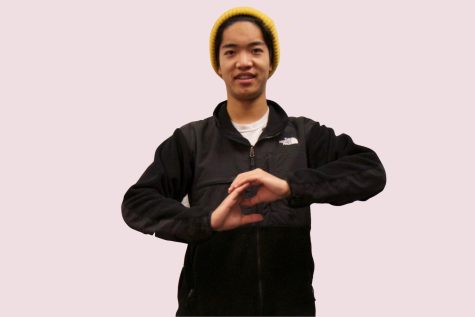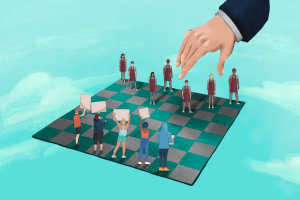Senior Bryan Chiang places third at ISEF competition
May 24, 2018
Out of more than 1,700 students, senior Bryan Chiang won the third place award of $1000, as well as the award of $750 for best in his category, Computational Biology, at the International Science and Engineering Fair (ISEF) this month. From May 13 to 19, Chiang headed to Pittsburgh, Pennsylvania for Intel’s worldwide science competition. Each year, students from more than 75 countries compete in this competition after receiving an invite from a qualifier science fair.
His project involved computational algorithms that use artificial intelligence and statistics to identify disrupted transcription sites in cells that control how a cell grows and determine when they die. Using the frameworks he developed, Chiang analyzed more than 50 million genomic regions to better identify these misaligned switches in transcription sites and improve current clinical treatment for cancer.
“I was always very interested in computer science and artificial intelligence, and after taking biology last year, I wanted to try using my knowledge in those two fields and apply it to the medical field,” said Chiang. “I reached out to a few Stanford labs, and actually one of the professors I talked to help set me up on a similar project to this one.”
The experience and resources that Chiang had access to proved invaluable to his project, as they set the groundwork for what he did in his ISEF project. Being at the university gave Chiang access to many papers that he would usually have to have licenses for. This helped him a lot when he was getting started that way he could get up to date with the current work established by previous work.
While Chiang was working at the lab during the summer, he worked under a professor and with an undergraduate student to create the technical tools needed to analyze the data. He usually spent an hour or two sifting through previous research, before spending three to four hours working on the actual algorithm. During the later stages of his project, he would run a lot of analyses and verifying of his results instead. Chiang spent 60 hours in the lab a week during the summer and did further research at home as well. After his time at the lab, Chiang continued to improve his algorithms and implement better methodologies to make his project more efficient.
“I worked more on the technical aspect side of things while I was at the lab, but afterward I worked more on the statistical part of what the data I analyzed meant,” said Chiang. “That meant looking at whether the switches I identified had any statistical significance, and also biological characterisation.”
In order to qualify for ISEF, Chiang had to win at the Synopsys Science Fair, an ISEF affiliated regional science fair. ISEF is different from most competition in that invites are given to winners of the regional level. Chiang won the grand prize at Synopsys, as well as best in his category.
The science fair at Synopsys felt similar to what it would be like at ISEF, which had to do with meeting many new people. At ISEF, which took place over the course of six days, from May 13 to 18, the attendees got chances to do a lot of other things outside of just presenting their projects, including visiting the Steelers football stadium, watching a documentary at a science center near the fair and listening to panels led by Nobel laureates and ISEF alumni.
“One of the things that I really enjoyed my time there was just meeting with other students who have similar passions and interests as you,” said Chiang. “We also got to see how some of the science projects that were presented here in the past became ideas for companies and how they developed further afterward.”
Finally, on the day of judging, Chiang was on the floor speaking with judges and answering their questions about the work he did.
“It was really nice to talk to these judges that had a lot of expertise in the field and being able to exchange ideas and talk about the work you’ve done,” said Chiang. “However, they also ask really challenging questions about your project, and limitations of your work and how you can overcome or improve that. It was a very rigorous but rewarding experience.”
Chiang’s project was a result of a lot of hard work and researching on his own. While his project was a large time commitment, he learned a lot during his journey to placing in ISEF.
“It’s been very personally rewarding to be making discoveries that can help us better understand the mechanisms of cancer progression, and to be able to make contributions to a much larger cause,” said Chiang. “I think the biggest thing I’ve learned is that you’re always going to have to deal with problems, and you have to be able to work around that. Don’t be afraid to talk to others or contact others to get help. I talked to Mrs. Della Santina to get started, as well as a lot of other professionals and graduates to get more information.”
Although Chiang achieved great success at ISEF this year, ultimately, it is his impact on the world that matters more to him. Looking to the future, Chiang plans on continuing to conduct research and starting his own projects at labs to make greater contributions toward science that can help more people.



























































